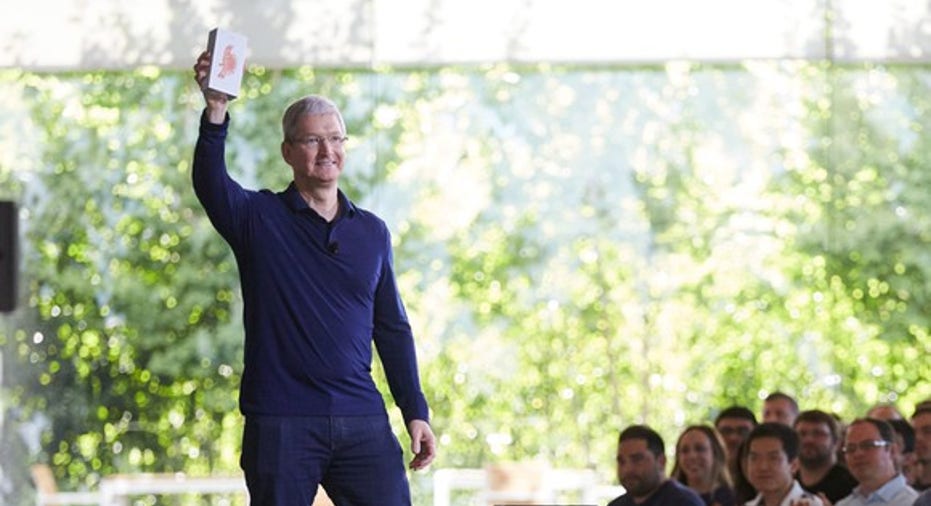If It Weren't For Capital Returns, Apple Would Have Nearly $400 Billion in Cash By Now

Here's an interesting factoid: If Apple (NASDAQ: AAPL) had not implemented its capital return program back in 2012 and consistently updated it in the years since, the Mac maker would be sitting on nearly $400 billion in cash.
That's not to say that I believe Apple's capital returns are a mistake. Quite the contrary; I'm a huge fan.
A numbers game
As of the end of 2016, Apple had approximately $246 billion in total cash on the balance sheet. After adjusting for $77 billion in total term debt, that leaves a net cash position of $169 billion. But that debt load is predominantly there in order to fund Apple's capital return program, so if we wanted to imagine how much cash Apple would have absent its capital return program, you need to add the total amount returned cumulatively to date to the current net cash position. Between dividends, dividend equivalents, net share settlements, and share repurchases, Apple has now returned $201 billion total. Here's a breakdown:
Data source: Apple.
Theoretically adding that all back in to net cash, Apple would be sitting on $370 billion in cash right about now. If it weren't already clear, that's an inordinate amount of money and far more than any company would ever need to operate.
To help put the sheer magnitude of that hypothetical figure into perspective, consider how few companies ever get their entire market capitalization or enterprise value that high. That's comparable to the current market caps of peer tech giants Amazon.com ($383 billion) and Facebook ($381 billion). That's equal to the entire 2015 GDP of the United Arab Emirates.
Thanks, Tim
Not only does Apple earn very little on that cash since it invests very conservatively (in CEO Tim Cook's words from 2013, Apple's investment subsidiary only invests in "the most conservative investments known to man"), but that cash also needlessly inflates Apple's total assets. This in turn increases the shareholders' equity on the balance sheet.
Tim Cook holding the billionth iPhone. Image source: Apple.
In itself, this isn't cause for concern, but there are many important performance metrics that investors look at which are derived from these figures. Ratios like return on assets (ROA) or return on equity (ROE) come to mind, which suffer and reflect negatively on management's performance if the denominator is excessively large for no good reason.
Steve Jobs had long been irrationally averse to any type of capital return program, and Cook's implementation of one is easily one of the most financially significant things he has done for investors.
10 stocks we like better than AppleWhen investing geniuses David and Tom Gardner have a stock tip, it can pay to listen. After all, the newsletter they have run for over a decade, Motley Fool Stock Advisor, has tripled the market.*
David and Tom just revealed what they believe are the 10 best stocks for investors to buy right now... and Apple wasn't one of them! That's right -- they think these 10 stocks are even better buys.
Click here to learn about these picks!
*Stock Advisor returns as of February 6, 2017
Evan Niu, CFA owns shares of Apple and FB. The Motley Fool owns shares of and recommends AMZN, Apple, and FB. The Motley Fool has the following options: long January 2018 $90 calls on Apple and short January 2018 $95 calls on Apple. The Motley Fool has a disclosure policy.



















